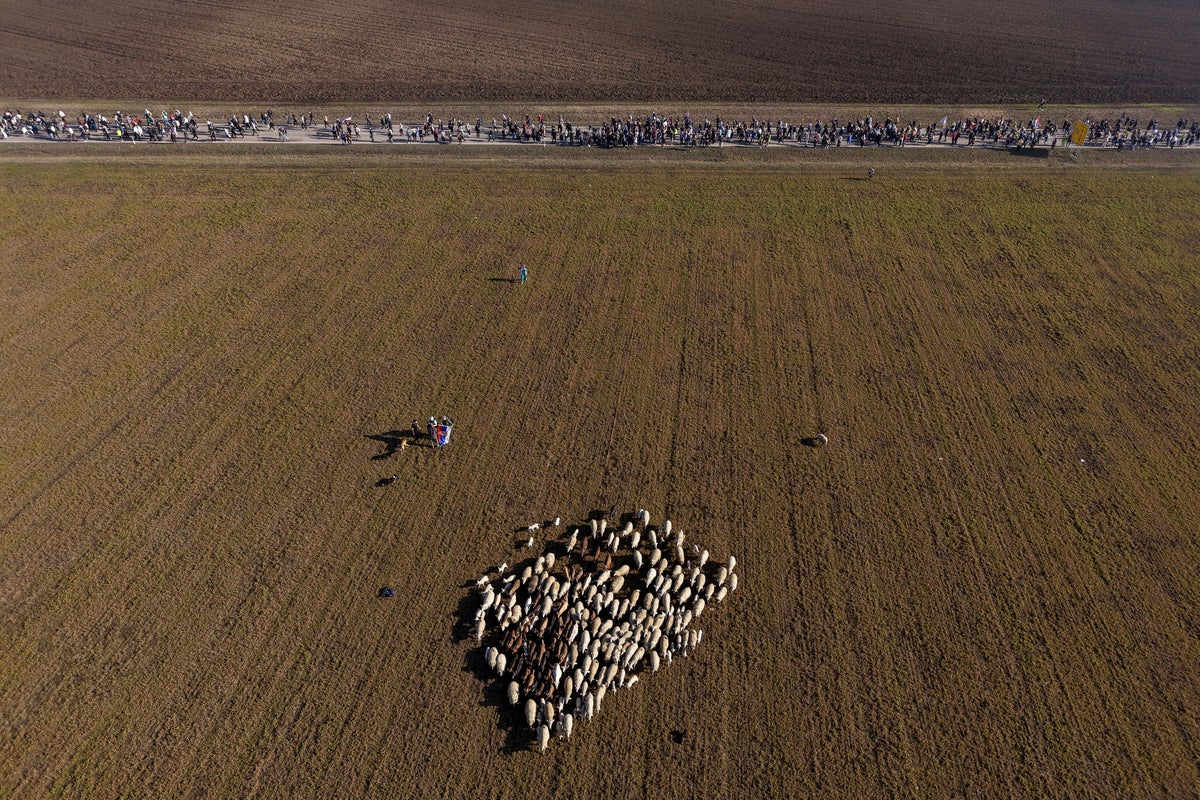The women, cloaked in red blankets stitched with messages and symbols of Māori sovereignty, wept quietly as they stood shoulder to shoulder – tears, Himiona explained, for the hundreds of Indigenous children in state care, for the significant population of Māori in prison and for the endless battle for Māori rights.
Under a blazing hot sun on Wednesday, political leaders gathered at the Waitangi treaty grounds in New Zealand’s far north to celebrate Waitangi Day, which marks the signing of the Treaty of Waitangi/Te Tiriti o Waitangi in 1840.
National party minister Paul Goldsmith said it was “disappointing” the microphone had been taken away, while minister Shane Jones, from New Zealand First, described the event as a “circus” and threatened to pull funding from the Waitangi National Trust unless it decided to “buck up its ideas”.
The treaty, signed by Māori chiefs and the British Crown is considered New Zealand’s founding document and is instrumental in upholding Māori rights.
Since taking office, the coalition government’s broader policy direction for Māori – including sweeping rollbacks to policies designed to improve Māori health and wellbeing – has prompted strident criticism.































